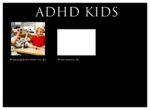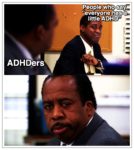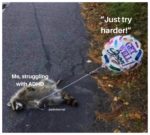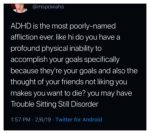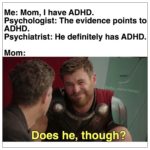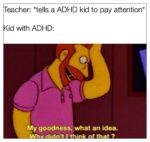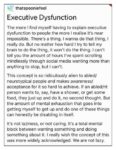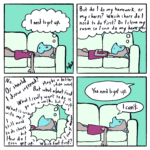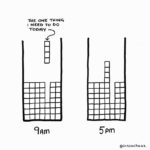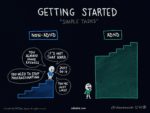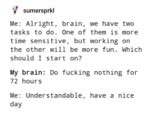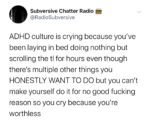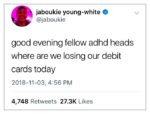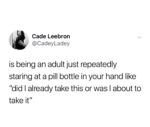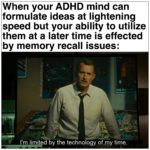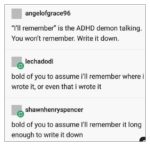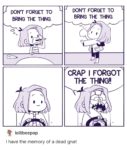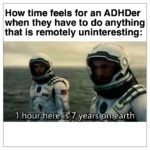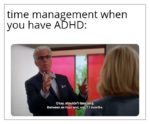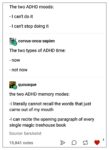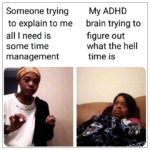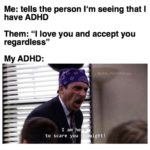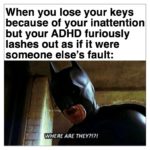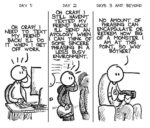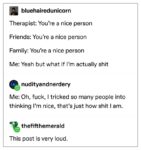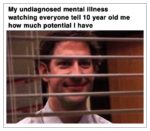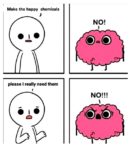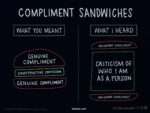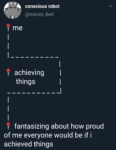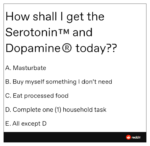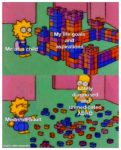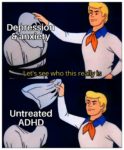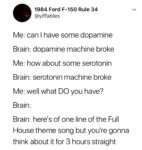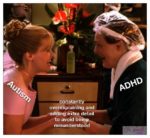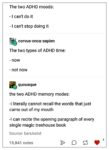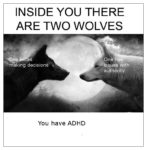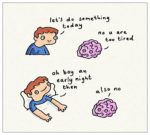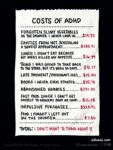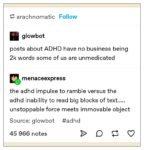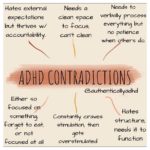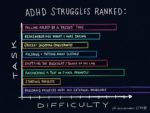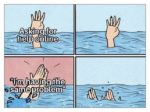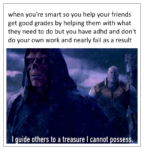Voices of ADHD
Why stress hormones and fight or flight response are part of ADHD “Teaching”
Here’s something that happens to ADHD children a lot: Getting pushed beyond their limits by accident. Here’s how it works and why it’s so bad.
The child says, “I can’t do this.” Adult (teacher or parent) does not believe it, because Adult has seen Child do things that Adult considers more difficult, and Child is too young to properly articulate why the task is difficult.
Adult decides that the problem is something other than true inabilities, like laziness, lack of self-confidence, stubbornness, or lack of motivation.
Adult applies motivation in the form of harsher and harsher scoldings and punishments. The child becomes horribly distressed by these punishments. Finally, the negative emotions produce a wave of adrenaline that temporarily repairs the neurotransmitter deficits caused by ADHD, and the Child manages to do the task, nearly dropping from relief when it’s finally done.
The lesson the Adult takes away is that Child was able to do it all along, the task was quite reasonable, and Child just wasn’t trying hard enough. Now, surely Child has mastered the task and learned the value of simply following instructions the first time.
The lessons Child takes away? Well, it varies, but it might be:
- How to do the task while in a state of extreme panic, which does NOT easily translate into doing the task when calm.
- Using emergency fight-or-flight overdrive to deal with normal daily problems is reasonable and even expected.
- It’s not acceptable to refuse tasks, no matter how difficult or potentially harmful.
- Asking for help does not result in getting useful help.
…………..
Not mine, source:
(Not my writing, preserving author anonymity)
I have ADHD. My dad has ADHD.
I know that it’s hard for NT folks to understand what it’s like to have ADHD, but you HAVE to stop connecting moral judgment to our ability or inability to do things.
We would not be on time if we just loved you more. We would not remember our appointments of we just tried harder. Our brains are not a good fit for this neurotypical world.
Assistive methods and devices are not there to train us to have a habit when they’re gone. Assistive methods are what allow us to maintain these habits.
If we grow out of one method it’s just because we’ve replaced it with another. Ideally, the method would be housed in our brain (yay medicine! or meditation! or positive self-talk! or any sorts of other internal practices!) but it’s still there. Continue reading
Song by Jonathon Coulton, Typography animation by Andrewthevideo
There is a longer version of this wonderful song, very worth a listen, it just doesn’t come with this great animation.
I didn’t write this, I lived it. All I would add is that for most of these, the word ‘child’ could just as well be; friend, sibling, partner, employee. Credit to the anonymous author.
- I’m trying way harder than you’ll ever know even though it doesn’t seem like it to you. I really, truly am.
- Criticizing me or getting angry at me that my brain doesn’t work better doesn’t help me. It makes me hate myself even more.
- I’m painfully aware of all the areas that I’m not measuring up. Instead of making a big deal about my shortcomings, try to find ways to help me.
- An accommodation isn’t the same as enabling. If you help me where I’m genuinely struggling, I’m going to be grateful. Don’t assume that I’m manipulating you.
- I’m not doing this to you, it’s NOT something I am doing on purpose.
- If you think it’s hard to live with me, imagine trying to live inside a body that won’t do what you want it to do.
- My brain doesn’t work right but I don’t know how to tell you that. It makes me angry and unkind, but I’m not trying to be that way.
- When I’m being horrible, what I really need is for you to tell me you’ll love me no matter what. And maybe hug me, too. I probably believe that I’m unlovable, so prove me wrong.
- I know that my lack of motivation is frustrating, but pushing harder doesn’t help me do better.
- My anger and frustration is a result of my brain not processing properly. When I’m overwhelmed and freaking out, don’t escalate by freaking out or getting angry too. I need you to be calm and show me that everything’s going to be fine even when I feel like it’s not.
- If I get overwhelmed, don’t expect me to sort out the problem all by myself. The part of my brain that controls regulation doesn’t work properly. That’s why I need your help to regulate.
- Don’t try to break me of things that you see as weaknesses. My sensitivity as a child means I’ll be compassionate as an adult. My stubbornness as a child means I’ll be independent and assertive as an adult. Instead of squashing these characteristics, channel them toward something good that can benefit me when I’m older. Don’t view me as something that needs fixed or toughened up.
- Don’t be afraid of labeling me. A label gives me answers and help. If my condition is serious enough to need to be diagnosed, you can guarantee that I’ve noticed something’s wrong and I’m wondering why I’m different too. Unless you tell me what’s going on, I’m likely to grow up angry and confused about why everyone has it all together and I don’t. A label means I can get help, it gives me answers and vindication.
- I have a real, actual medical condition in my brain. It’s just as real as if I had Type 1 Diabetes. Just like Diabetes, I need help to deal with the condition. No one tells someone with Type 1 Diabetes that they are lazy if they’re tired because their blood sugar is low. They understand that it’s part of the condition.
- Please, please, please learn about my condition, and don’t blame me for things that are out of my control. Just like leaving Type 1 Diabetes untreated results in serious complications and even death, untreated ADHD can lead to serious complications – potentially including death. Thankfully, there are many ways to treat ADHD (and medication isn’t the only way but a sure way to help me).
- My frontal lobe is developing 30% behind normal. Please understand this and don’t put me in situations I’m not ready to handle. If you give me responsibility that’s beyond my developmental age, don’t be angry with me that I do poorly. That’s setting me up for failure, and that’s just cruel.
- Stop expecting me to be normal. I can’t be. Not for all my trying. Until you accept that, I’ll always be a failure in your eyes, and I’ll always view myself as not good enough.
- You have the power to make me miserable by how you treat me. Remember to treat me with love and grace. Treat me how you would want to be treated if you were struggling with a problem in your brain. I may make myself miserable sometimes, but don’t add to that by treating me poorly. When in doubt, be kind. Believe me, I need your kindness, love, support, time and validation.
Nobody Understands (but they all think they do)
Executive Dysfunction, motivation, avoidance, resistance, disorganization
Memory: Short term, long term, working, and nonexistent
Time Blindness, distortion
Emotional Mess: Rejection sensitive dysphoria, anxiety, depression, guilt, shame, despair, etc.
Random leftovers
…in comparison to the mental states and accomplishments that normal folks take for granted.
ADHD isn’t about children paying attention, it’s about problems straight out of “The Man Who Mistook his Wife for a Hat”.
ADHD is the Cerebral Palsy of executive function. Having ADHD is like living in a world where gravity increases and decreases randomly, but only for you. One day you are bouncing along with everyone else, carrying school books and groceries, and the next day your arms and legs are unresponsive. You stagger, you crawl, or even lie flat, unmoving. The next day in low gravity you struggle futilely to return to earth after a high bounce. If you don’t keep up, your grades will suffer, or you may not keep your job. Too bad. You look flakey, lazy, self-indulgent, or at best, pathetic.
Your story about gravity changes nothing, it means nothing to anyone. People tell you to shape up and try harder but you don’t know how, where do we keep the extra TRY? You can’t seem to establish any traction between you and the problem. You reassure them that you’ll buckle down and try harder. Then you walk away with no frigging idea of how you’ll accomplish that.
Remembering, initiating, and persevering
Remembering to act, beginning to act, and continuing to completion are three discrete neurological functions. They each require a chain of cellular events and nerve feedback just like most other biological processes. In healthy people, these steps are as natural and unconsidered as reaching out to pick something up. The beauty of a healthy system is its fluidity and transparency, the invisible, effortless, unconscious event. Naturally, if you aren’t having problems say, pooping, or sleeping or lifting your arm, these problems never cross your mind. Imagine if you had never had such trouble, or even heard of people having these problems: You’d find such complaints mystifying and trivial. Normal people don’t try to imagine ADHD because they feel confident about judging real vs fake complaints and what commonsense calls for. “It’s easy, just do it!”…”Stop slacking” “I know you can do it, I’ve seen you do it!”
While hoofbeats should suggest horses over zebras, this behavior is standing among zebras and insisting that only horses can make that sound.
When the ADHD person says “I don’t know why, but I can’t do this”… normal people are baffled because they don’t recognize mental functions as systems that can fail. NOT having a kink in your pipeline means there is no observable problem for you to troubleshoot. Making these systems “visible” through exercises that reveal the processes to caregivers, teachers, and therapists would be incredibly helpful in upgrading their understanding of ADHD. Inside the brain of an ADHD student, there are multiple systems that can go, as Doctors say, “Kablooey”. When this knowledge becomes commonplace and we can begin to target trouble in particular systems scientifically and creatively it will be a lovely moment for us all. For some reason, right now, clear common sense understanding of the mechanisms of ADHD is bizarrely rare. A very small group is well informed and the vast majority have little or no understanding. Beliefs discarded by science are more common on the frontlines of treatment than current models.
How do I fuck up? Let me count the ways
Without working memory, a task becomes impossible to recreate without crawling slowly through the steps constantly consulting the instructions. Maddeningly we probably know the steps but they refuse to cohere as a list of actions, they won’t “sit in the right chairs”.
Without healthy executive function, we lack an accelerator pedal or ignition switch to get started and we will sit there inert in the face of any amount of pressure to get us going. If we could escape that pressure and disappointment, often observed by the whole class, by doing what is needed, we fucking would. The teacher generally leans in and goes over the process again but the process isn’t the problem, right now the problem is no gas pedal. “How do I make myself start?” is the question pressing on the child’s heart as they strain to comply. Their mental car is stalled out and they are holding everyone up with their dumb broken car. Again and again, they try to start it up and escape this disaster with a little dignity.
Burdened by co-morbidities like depression, anxiety, and dysregulated emotions we are overwhelmed and collapse before (seemingly) small tasks like entitled little princes. Now we look weak, needy, and ridiculous, just like most other days.
Time Blindness
Having ADHD is living in a world where time speeds up and slows down in crazy ways but only for you. Deadlines hover lazily in the distance and then slam forward in a disjointed way that doesn’t make sense and you scramble awkwardly to complete the work, buy the present, or pay the bill. Time is capricious and even though this has happened to you all of your life, you won’t anticipate the next deadline any better than the last one. That’s because this isn’t a failure to learn, it’s perceptual and neurological. We are time blind. We are driving through fog and can see about 20 feet in front of the car.
Every neurology has a sense of time. The common-sense feeling about the length of a month or an hour describes the standardized neurological norms for this function. ADHD people have an unpredictable malfunction in this area which is comparable to incorrectly gauging how near or far objects are and crashing into them over and over. Normal brains look at this behavior and understandably ask: “What is WRONG with you?” from where they are sitting, it looks like this damn kid needs to pay more attention and try harder.
And we totally get why you feel that way…but you think you’re feeling frustrated?
Desk is Lava
Boring and difficult tasks burn. You can’t hold them to completion them because there’s something very much like pain happening. It’s almost impossible to explain what this is like to people who haven’t felt it. Challenging tasks like doing your math homework or filling out work-related forms, become charged with a field like magnetic repulsion, pushing you away. When you try to push through the field you become angry and emotional and you feel that your understanding of how to even begin… has abandoned you, leaving a weird hole in your mind where the answer is supposed to be. A hole where maybe the answer even was, at one point, but now it’s gone. You are probably getting tears in your eyes and nobody else seems to be struggling.
You find yourself developing complicated strategies for beginning or avoiding things. If people observed your internal process they would be shocked at how complicated it may be for you to do something like make a phone call or get around to a chore. Remaining in boring places feels like sitting on a hot stove. When you FINISH with places you need to leave them. When you can’t leave, pressure builds inside you and all the air seems to leave the room. You may feel like you are on the edge of a panic attack. I once quit a well-paying job as a database manager for a large research hospital after 3 months because days lasted 100 hours and my office made me so claustrophobic that I was losing my mind.
Escaping the prison planet
Conversely, fun things and things you love to do are sacred islands of sanity and comfort. There’s a strong chance that you find it hard to stop, that you spend too much time there. Your fun activities may be the only time it doesn’t feel like you vs. the world. Your brain feels happy and relaxed here, the stress hormones ebb away. The thought of going back to the unbending, disappointed, angry, world feels like exile. When people interrupt you and tell you to stop doing the fun thing, you hate them. With ADHD you are out of sync in time with the life going on around you and probably can’t see it. For example, you might react WAY faster than anyone around you but because the data of our own senses always appears to be correct, other people seem to be the ones who are dawdling, taking absurd amounts of time to act or make a point. You are likely too abrupt and harsh with your people and you probably reject this claim when they tell you that: You’re the one who is treated unfairly. They are wrong, interrupting you, and being insensitive. You may be very observant and quick, but you are also probably not as good at reading people and situations as you think. As Elmore Leonard said “If you meet an asshole in the morning you met an asshole, if you meet assholes everywhere, you’re the asshole. You might be goofy and playful to a fault, jokey in a mechanical way that may seem thoughtless at times. There’s probably an overly enthusiastic shortcut in your mind to rapid decision making. It means that bad, impulsive, uninhibited choices are common, you probably burn a lot of bridges and alienate a lot of people. You are probably maddening to the people who love you. They worry about you, yet you may regularly hurt their feelings. You feel they don’t understand you (admittedly, they probably don’t) you probably think they are meaner and possessed of worse intentions than they are.
You spend a lot of energy trying to look like a normal person who does things as well as anyone else. This is called Passing for Normal and it’s a strange goal to carry with you everywhere, all your life. Non-ADHD people spend a lot of time trying to look competent and normal too, but without the 10,000 volts of existential dread, and sense of already having failed. There’s probably a big reservoir of shame and sadness inside you, stored up from endless hours of observing yourself not keeping up with the pack. Of all the people you drive to the point of despair, you are foremost. You talk to yourself with the same baffled disappointment as everyone else, except your inner voice, may rage viciously at the idiot who always lets you down when it matters. Self-hatred is common as dirt. It’s also likely you aren’t aware of how many negative thoughts commonly live inside you. These do the most damage before you become aware of them.
Whether it’s organic or as the result of these sorts of experiences, ADHD people are often painfully sensitive to criticism (or simply imagined criticism ) and are a hair-trigger away from an angry or miserable outburst. Watch out, there’s usually a heartbroken and furious rant, chambered and waiting only for a bad bump. As awful as it is to have one of these unloaded on you, imagine what it’s like to walk around with them inside you all the time.
The American Psychiatric Association (APA) says that 5 percent of American children have ADHD. But the Centers for Disease Control and Prevention (CDC) puts the number at more than double the APA‘s number. The CDC says that 11 percent of American children, ages 4 to 17, have this disorder. We are underachievers. We are often smart and funny and even talented, but we can’t properly plan, initiate, or persevere. We have tons of novel ideas that we write down in notebooks but we don’t complete them. Overall we achieve less educationally and we earn less money.
We have no disability concerning imagination, creativity, or original thinking but we lack long term planning, organization, and consistency. We cannot make coherent maps of our own futures so we are trapped in the short term, fending off dangers we can’t see until they are imminent. We have trouble planning long-term. Many of us are quirky and off-putting because our perceptions and resulting communications are skewed and out of sync with the world. Often, and often unconsciously, we develop eccentric (crazy) ways of coping because so many activities seem a maze filled with dead-ends and random inexplicable successes. Sometimes our anxiety creates mad circuitous pathways of avoidance as we try to reach a goal. These coping strategies look absurd from the outside, filled with unnecessary and irrelevant steps.
Love
Many ADHD people end up hitching our wagon to a practical person who helps us remember to pay bills and buy dog food. Many people who LIKE being the savior are controlling and manipulative. Sometimes we are afraid to leave bad relationships because our daily life homeostasis will collapse. When most people leave a bad partner, they look for their lives to improve, not burn to the ground. This is a relationship as a crutch. Our side of this relationship dynamic is driven by weakness and fear, which is an awful reason to partner and a chilly motivation for wanting someone in your life. The relationship between crutch and cripple is not a great love story.
Not surprisingly, divorce levels are high.
Can’t face it
There’s a cringe-worthy ADHD subgroup who live in denial. Many of these deniers develop arrogant and “superior” personalities and communication styles. They spend a good bit of their lives doing the cognitive dissonance math needed to balance the accounts of their self-worth. This is a life spent whistling through the graveyard of hopes and dreams and rationalizing failures as clever success. My suspicion is it’s a kind of ego version of an emergency inflatable raft. They would be destroyed and sunk by facing their disability head-on, but inside, through the soundproof walls of denial…they still feel it, they still know it but they can’t say it, and neither can you. The resulting ego-as-spiky-puffer-fish is grating, self-involved, and poorly in touch with reality. They may prattle on about how amazing they are. This sort of behavior doesn’t often inspire compassion, remember though, that this annoying person with ADHD probably spent their entire childhood feeling like a failure, being one by objective standards, and being treated like one too. They had to learn to stay upright and keep moving SOMEHOW and denial was their way of avoiding despair and collapse. They inflated the emergency raft of denial and held on for dear life.
The alternative to denial is radical honesty leading to humbleness. It is both liberating and mortifying.
“Hi, my name is Hugh and I suck at so many things.”
It helps to learn the neurological roots of your disorder because you can somewhat forgive yourself for struggling and stumbling where others seem to glide. Most of our lives we think every one of our problems arises from character flaws and moral failings. It’s healing to know that there’s a biological cause that you had no power to correct. Owning your truth though, you take up a life in the open as someone with an unreliable brain and a record of goofing things up. These failings aren’t character flaws, but they are still failings. You aren’t any better at life or work just because you know what causes your problem.
If you face it, you can become a better person by holding yourself accountable for some bad things you now have the power to change. If your loved ones have been telling you that you bark at them with inappropriate anger, you can begin believing them, allowing for this, and consciously softening your answers. The reward is people you love feeling happier, which includes being happier to see you.
Treatment
There are treatment plans and best practices, meds, etc. on the books but this doesn’t mean they are effective only that they are more effective than other stuff we’ve tried. Medical science is tasked with generating a treatment plan when presented with an ailment. Our assumption as medical consumers is “Ergo, that plan works” but when the ailment is poorly understood the treatment plan can just be a modesty screen covering our ignorance. Every ADHD person I know struggles day-to-day in a way that shows how we do not medically have a handle on this.
Treatments relative to the disability are little and half-assed. If you go on meds things may improve, or not. I don’t honestly know how effective my meds are, I have days where I am awesome and days where I am useless. The whole thing is so inconsistent and unpredictable. There aren’t many meds to choose from, they all have downsides, and none will FIX you. Generally, they help you be a bit more effective about ONE of your issues and most of us have several. If you need amphetamines you face constant suspicion and challenges from the medical community who must treat you like a dubious character just for what is written on your prescription. It’s not really their fault as they have to answer to those who govern controlled substances, but that doesn’t mean it’s any less humiliating…or tiresome. Diabetics don’t get a distrustful stare while picking up insulin.
Medical response CAN be toxic with a lack of insight into the disability. One doctor, covering my doc on vacation, refused to fill my prescription. His nurse stage whispered to me, pointing at her head “Because those drugs are for crazy people!” When my prescription needs renewing I may have to “plead my case ” all over again to someone new and possibly unsympathetic. Many people lose their meds short or long term when they change doctors.
Look at me, I’m tender and flaky
As far as why I am doing this, outing myself, consider that CDC estimate of 11 percent of Americans, 4 to 17, living the life I just told you about. They say adults can age out of the disorder, and while it’s possible, I think most ADHD adults simply age out of being counted and treated. This is medical science conveniently writing off a big group of annoying, hard to help patients by saying they moved to a big beautiful farm in the country where they can run around all day with the other weirdos. “Oh, them? um…they got better!”
Meanwhile, grownups with ADHD resign themselves to their quirky, lowered-expectations lives. They try to keep their weakness a secret so as not to risk any of the security and respect they’ve managed to acquire. So imagine the wasted potential, the ache of being a lifelong failure at things most people find fairly easy. Imagine 11 percent of the people you see daily having one tiny arm and one tiny leg and working desperately, in shameful secret, to move and work like everyone else.
Imagine what it feels like to work your hardest for a “Passing with a D minus ” grade. Then imagine everyone looking at you and feeling a range of emotion from indifference to disappointment, to scorn. Without wanting to encourage a victim mentality, many ADHD people have been punished again and again for a literal disability. They are wounded inside and out.
And that’s what it’s like having ADHD.
The other meaning of denial.
And finally, no matter how nakedly honest and articulate we are about what’s wrong with us, every other average asshole we meet on the street knows the REAL TRUTH about ADHD through the magic of lazy opinions and lectures us wherever we happen to be just then, on giving up our medication and trying harder.
The other common class of assholes happily tells us that they have ADHD based on small infrequent memory lapses or declares “Everybody is a little ADHD!” which translates into “I haven’t thought seriously about what you’ve told me even for a second, not even once!” and also means “Your problem isn’t real, it’s just normal brain function and you are exactly like everyone else”. Bitch, does it take you 3 months to open your mail?
Life with one foot stapled to the floor
Brothers and sisters of the hinky brain, please be brave and stand up, face it, and claim it. The time has come. Daylight yourselves, learn all you can, and educate everyone who’ll allow it. Demand better-informed teachers, psychologists, and medical personnel. Don’t settle for being the damaged and discarded 10%. Until we squawk loud enough to catch the attention of the world and tell our true story, new treatments will remain a low priority and the “experts ” our ADHD children interact with will often not understand them or treat them in accordance with real best practices.
Most people in the mental health “business” have no sense of urgency about the millions of ADHD children who wake up every day only to remember they are a failure alone in a crowd of people that don’t understand what the hell is wrong with them, or how to help.
I want to increase this sense of urgency.
Below is the amazing Dr. Russell Barkley, the best explainer/describer of ADHD. If you watch this 3-minute video you will be more knowledgeable about ADHD than any special Ed teacher or therapist I have ever spoken to. You will probably have a clear picture of it for the first time.
